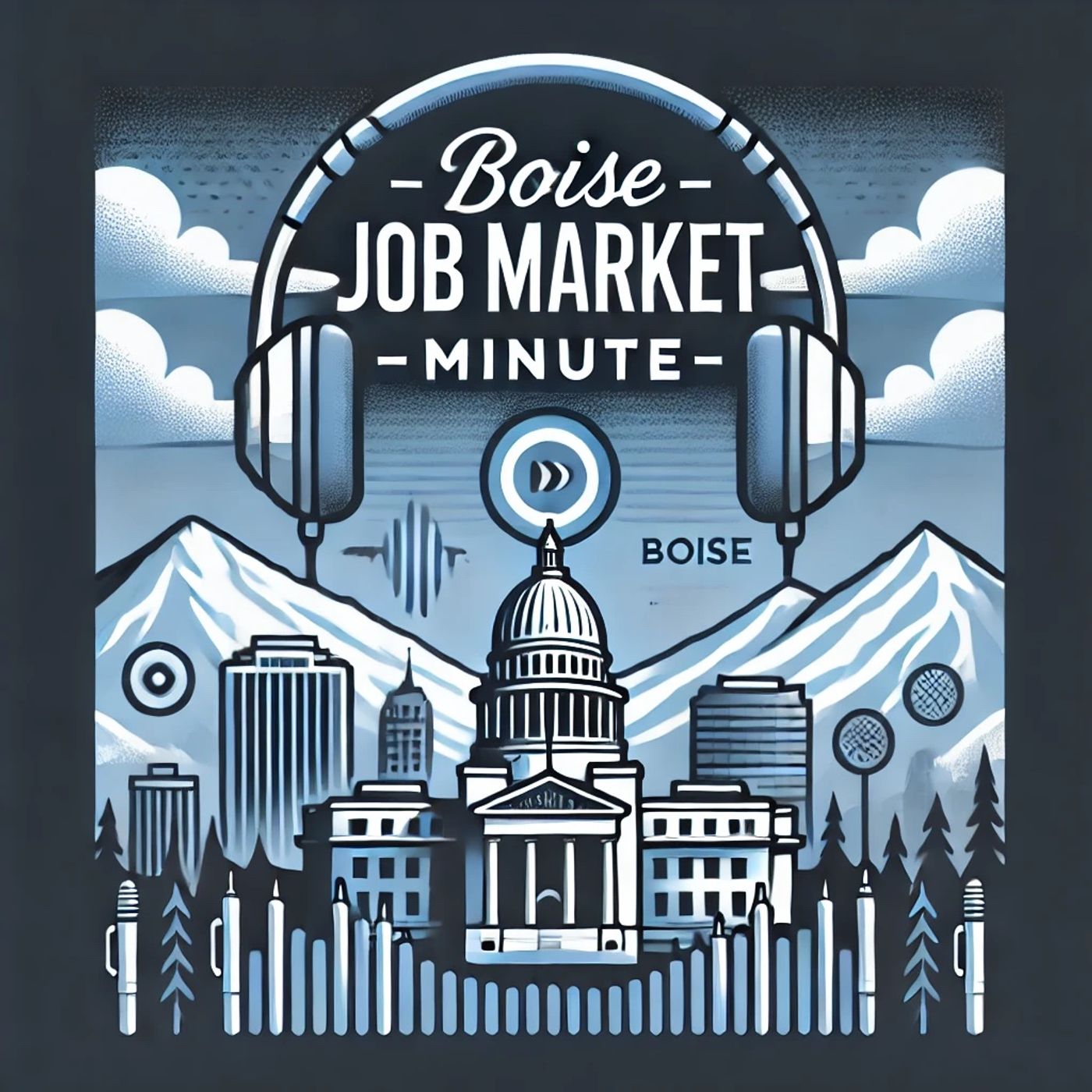Mar 19 2025 3 mins
The job market in Boise is experiencing significant growth and development, driven by a diverse range of industries. As of 2025, the Boise City Metropolitan Statistical Area's workforce comprises approximately 372,470 employees, with a median annual income of $45,320.
The employment landscape in Boise is characterized by a healthy mix of sectors. Major industries include health care and social assistance, retail trade, administration and support services, manufacturing, and professional, scientific, and technical services. Key employers in the area include St. Luke's Healthcare System, Micron Technology, Albertson's Companies, Boise State University, and Idaho Power.
Statistics indicate a strong labor market with an unemployment rate of around 2.7%, which is lower than the national average. This rate has remained relatively stable, reflecting the city's economic health.
Trends in the job market show steady growth in the trades, transportation, and utilities sectors, as well as in the service industry. The technical industry, particularly in areas like DevOps engineering, is thriving, with companies like Micron and Meta investing heavily and creating thousands of new jobs. The service industry, including restaurants, theaters, and other entertainment venues, is also seeing significant growth post-pandemic.
Recent developments highlight Boise's emergence as a tech hub, with over 3,800 tech businesses contributing $7 billion to the local economy. This growth has led to a surge in tech job applications, with a 116% increase from 2021 to 2023. The city is also focusing on educational initiatives, such as BSU's tech programs and the Idaho LAUNCH initiative, to support workforce growth.
Seasonal patterns in employment are less pronounced due to the diverse economy, but there is a noticeable increase in demand for certain roles during peak construction and infrastructure development periods. Commuting trends are influenced by the city's expanding public transportation plans, although these are still in development.
Government initiatives are aimed at supporting the growth of key industries, including partnerships to enhance public transportation and infrastructure. The city is also working to address housing challenges, planning to build 2,770 new housing units annually to meet the demand driven by the influx of tech professionals.
In conclusion, Boise's job market is robust and diverse, with significant growth in tech, trades, and service sectors. The city's economic health, low unemployment rate, and supportive government initiatives make it an attractive location for job seekers.
Current job openings include:
- DevOps Engineers with salaries ranging from $157,000 to $210,000.
- Accountants and financial experts to support the growth in transportation, trades, and utilities.
- Marketing and HR positions in the service industry.
The employment landscape in Boise is characterized by a healthy mix of sectors. Major industries include health care and social assistance, retail trade, administration and support services, manufacturing, and professional, scientific, and technical services. Key employers in the area include St. Luke's Healthcare System, Micron Technology, Albertson's Companies, Boise State University, and Idaho Power.
Statistics indicate a strong labor market with an unemployment rate of around 2.7%, which is lower than the national average. This rate has remained relatively stable, reflecting the city's economic health.
Trends in the job market show steady growth in the trades, transportation, and utilities sectors, as well as in the service industry. The technical industry, particularly in areas like DevOps engineering, is thriving, with companies like Micron and Meta investing heavily and creating thousands of new jobs. The service industry, including restaurants, theaters, and other entertainment venues, is also seeing significant growth post-pandemic.
Recent developments highlight Boise's emergence as a tech hub, with over 3,800 tech businesses contributing $7 billion to the local economy. This growth has led to a surge in tech job applications, with a 116% increase from 2021 to 2023. The city is also focusing on educational initiatives, such as BSU's tech programs and the Idaho LAUNCH initiative, to support workforce growth.
Seasonal patterns in employment are less pronounced due to the diverse economy, but there is a noticeable increase in demand for certain roles during peak construction and infrastructure development periods. Commuting trends are influenced by the city's expanding public transportation plans, although these are still in development.
Government initiatives are aimed at supporting the growth of key industries, including partnerships to enhance public transportation and infrastructure. The city is also working to address housing challenges, planning to build 2,770 new housing units annually to meet the demand driven by the influx of tech professionals.
In conclusion, Boise's job market is robust and diverse, with significant growth in tech, trades, and service sectors. The city's economic health, low unemployment rate, and supportive government initiatives make it an attractive location for job seekers.
Current job openings include:
- DevOps Engineers with salaries ranging from $157,000 to $210,000.
- Accountants and financial experts to support the growth in transportation, trades, and utilities.
- Marketing and HR positions in the service industry.
